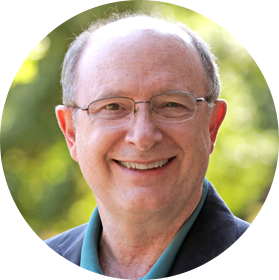While the theoretical, neurobiological, and treatment parameters of addiction counseling and coaching are all critically important, it is equally valid to consider some of the faith-based dynamics from a holistic perspective. Addiction, in all its various expressions, can result in the formation of spiritual strongholds and spiritual bondage in the life of the addict. It may not sound very profound, but a good definition of a stronghold is that it simply represents something having a strong hold of a person.
There are several Scriptures in both the Old and New Testaments that speak to this subject. The Greek word, pharmakon—a feminine noun from which we derive words like pharmacy, pharmacist, and pharmaceutical—is used to describe a curative or medicinal drug. Interestingly, a derivative with the same root, pharmakeia, is associated with drugs, but related to sorcery, the occult, witchcraft, illicit substances, and incantations. These terms are found in Galatians 5:20-21 and Revelation 9:20-21 (translated as sorcery in each case).
The human body is remarkably (even divinely) balanced chemically, and when that balance is disrupted—either from introducing chemicals into the system that are not necessary, or through other mental health conditions such as psychosis and schizophrenia—spiritual doors (mostly hurtful) seem to be opened within a person’s soul. Discontinuing the substance use or introducing antipsychotic medications often closes those doors and restores a sense of equilibrium. Nevertheless, this may be why we frequently find ourselves in a spiritual battle when addressing addiction issues with clients.
Every addiction (chemical or process/behavioral) also has certain dynamics that are in common regardless of the neurobiology factors that may come into play:
- They provide a form of escape.
- They serve the purpose of removing a person from his/her true feelings.
- They always involve pleasure.
- They override the ability and/or willingness to delay self-gratification.
- They involve obsessive-compulsive behaviors.
- They lead to a system of denial and/or minimization.
- They totally control the addict and that control transcends all logic or reason.
- They are destructive and unhealthy in the long run.
- They take priority over all of life’s other issues.
- They involve psychological dependence.
The Apostle Paul, in Romans 7:14-25, understood the battle clearly; listen for the inner struggle and emotional turmoil from his discourse regarding this powerful dynamic, as well as his conclusion that it is ultimately Christ who is the deliverer. Consider also the following passage of Scripture from 2 Kings 17:16-17 (NASB). This was during a time of Israel’s history when the people, by-in-large, had deserted their singular devotion to God and began committing what the Bible refers to as spiritual adultery. Several words are highlighted, which speak to an important process:
“They forsook all the commandments of the Lord their God and made for themselves molten images, even two calves, and made an Asherah and worshipped all the host of heaven and served Baal. Then they made their sons and daughters pass through the fire, and practiced divination and enchantments, and sold themselves to do evil in the sight of the Lord, provoking Him.”
In the passage above, a progression can be seen that begins with a choice and ends with a generational impact.
- The first choice the Israelites made was to forsake God. In this context, it means they engaged in a volitional act of the will to turn their backs on Him and to walk in a manner that was contrary to what He desired for them. All addictions involve moral choices. While the research clearly indicates a genetic predisposition for some individuals (especially in the case of alcohol dependency), it does not mean a person will be automatically compelled to take the first drink. Choices are still made. In a pure disease model, choice would not be a factor. For example, if a person had cancer, he or she typically would not merely wake up one morning and say, “I choose not to have cancer” and it would then disappear. However, when it comes to an addiction, people can make choices (Step 3 in any 12-Step program) to live differently. If exercising one’s will was not an option, no one would ever move from addiction to sobriety and into the recovery process.
- The second choice of the Israelites was that they made idols. In other words, they took what was already in their hearts and minds and spirits and then brought these objects into their tangible reality. When it comes to addiction, a person first makes a choice of the heart and mind and then, for example, brings the bottle, the line of cocaine, the pornographic image, the food item, the slot machine, etc., into reality. They set it before them for the purpose of engaging the object or behavior.
- The third choice the Israelites made was they worshiped what they had created. Worship at its most basic level is simply giving someone or something one’s time and attention in such a way it is elevated in prominence and priority. People can worship many things other than God. In the addictive progression—from experimentation to occasional using to regular using to dependency— individuals begin to spend more and more time and give more and more attention to the object or behavior they have set in front of them.
- The fourth choice the Israelites made was they served Baal (the idol they fashioned and then worshiped). The Hebrew word for serve here is “abad” and it does not mean to serve in the positive connotation of assisting or helping another. The literal translation is “to be in bondage to” or “enslaved by” something. The progression from an act of the will, to bringing something into one’s life, to giving it greater priority, may then result in bondage and enslavement (addiction and dependency) to the object or behavior.
- The fifth choice the Israelites made was they sacrificed their children as a result of their choices, and in essence passed the problems on to the next generation. Baal worship at the time included human sacrifice among other abominations. When it comes to addictions, we often see the negative and sometimes destructive impact on the addict’s family members and loved ones.
So now, let us return to the beginning of the process. If forsaking God is the first step down a path leading to damaging consequences, then from a biblical perspective, confession, repentance,and godly sorrow now become the first steps back to sanity and a healthier lifestyle. In his second letter to the Corinthians, Paul says:
“For the sorrow that is according to the will of God produces a repentance without regret, leading to salvation, but the sorrow of the world produces death. For behold what earnestness this very thing, this godly sorrow, has produced in you; what vindication of yourselves, what indignation, what fear, what longing, what zeal, what avenging of wrong.” (7:10-11).
Look at the first three steps from Alcoholics and Narcotics Anonymous:
- We admitted we were powerless over our addiction and that our lives had become unmanageable.
- We came to believe that a Power greater than ourselves could restore us to sanity.
- We made a decision to turn our will and our lives over to the care of God as we understood Him.
These Steps speak to the principles of ownership, faith, and a commitment to action. Addiction is a complex phenomenon involving genetic/biological factors, as well as psychosocial and spiritual dynamics. The good news, from a counseling and coaching perspective, is that those we work with and care for still have choices. With God, there is always a path that points in the direction of freedom.

Eric Scalise, PhD, currently serves as Senior Vice President and Chief Strategy Officer (CSO) with Hope for the Heart. He is also the President of LIV Consulting, LLC, the former Senior Vice President for the American Association of Christian Counselors (AACC) and former Department Chair for Counseling Programs at Regent University. Dr. Scalise is a Licensed Professional Counselor and a Licensed Marriage & Family Therapist with over 42 years of clinical and professional experience in the mental health field, and he served six years on the Virginia Board of Counseling under two governors. Specialty areas include professional/pastoral stress and burnout, combat trauma and PTSD, marriage and family issues, grief and loss, addictions and recovery, leadership development, and lay counselor training. He is a published author, adjunct professor at several Christian universities, conference speaker, and frequently works with organizations, clinicians, ministry leaders, and churches on a variety of issues.








